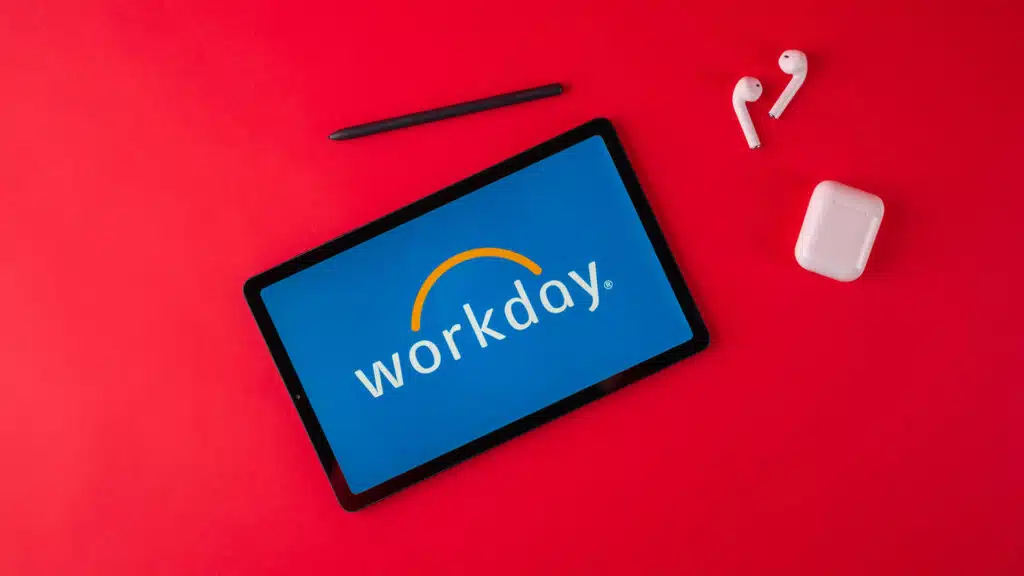On this episode of Futurum Live! From the Show Floor, I talked with 21CS’s Eddy Ciliendo, Vice President of Business Development, during the SHARE Conference in New Orleans. Our conversation covered their partnership with IBM, why Cloud Data Management (CDM) matters and what’s next on the horizon for 21CS. It’s a great conversation you don’t want to miss.
Learn more at 21CS.
You can view the video of their conversation here:
Or grab the audio on your streaming platform of choice here:
If you’ve not yet subscribed to the Futurum Tech Webcast, hit the ‘subscribe’ button while you’re there and you won’t miss an episode.
Disclaimer: The Futurum Tech Webcast is for information and entertainment purposes only. Over the course of this webcast, we may talk about companies that are publicly traded and we may even reference that fact and their equity share price, but please do not take anything that we say as a recommendation about what you should do with your investment dollars. We are not investment advisors and we do not ask that you treat us as such.
Transcript:
Steven Dickens: Hello and welcome. My name’s Steven Dickens, and you’re joining us here for Infrastructure Matters, live from the show floor here at Share in New Orleans. I’m joined by Eddy Ciliendo from 21CS. Hey, Eddy, welcome to the show.
Eddy Ciliendo: Hey, Steven, thanks for having me.
Steven Dickens: I think we seem to do this every Share, don’t we?
Eddy Ciliendo: Sure feels that way.
Steven Dickens: So, you’ve changed company recently. Tell the listeners and the viewers 21st Century Software, as it used to be known. Give us a brief overview of your role and then just tell us a little bit about what’s going on with the company.
Eddy Ciliendo: Yeah, no, absolutely. So yeah, I joined 21CS as we’re now known after rebranding. I’ll talk about that in just a second. Responsible for all things business development strategy. Yeah…
Steven Dickens: Fantastic. So, tell me about the rebrand. We spoke to Nick last time we were at the show. Lots going on. Tell us a little bit about the rebrand.
Eddy Ciliendo: Yeah, and I think the rebrand is really encapsulating all of the changes that are going on. I think that 21st Century Software, as we were known before, company with a great history, I think great products, a trusted name in the market. But I think what we’re doing now is extend that portfolio and we can talk about the new products that we’re launching. Also, extend our market reach and modernize the company as a whole. So, those were the three key reasons why we were doing that rebrand.
Steven Dickens: Fantastic. And you talked about some new announcements, some good stuff coming out last week. Give us a brief overview of a little bit about what’s new from 21CS.
Eddy Ciliendo: Yeah, I mean, again, that’s one of those exciting things that now show the future of the company. So, last week, jointly with IBM, we announced Cloud Data Manager, or the full name is IBM DFSMS Cloud Data Manager.
Steven Dickens: Nice, catchy title, right?
Eddy Ciliendo: Exactly.
Steven Dickens: Nice, catchy title.
Eddy Ciliendo: But I think DFSMScdm, or Cloud Data Manager, I think that really gives you an idea of what the product is for. So, it’s all about the big trend that you and I have been discussing a couple of times now, both face-to-face but also during analyst briefings around cloud object storage, which I think is so crucial in the cloud industry, but also crucial for the mainframe as part of this bigger, hybrid cloud movement, right?
Steven Dickens: Exactly. And from our conversations and me tracking this space, that’s not only just from a resiliency point of view, but also from a security point of view. Is that what’s coming through in the release?
Eddy Ciliendo: Absolutely. So, the first release version 1.1, that just GA’d, I think, last Friday, will take your mainframe archive data that is usually stored on tape. And as you know, customers have petabytes of data out there.
Steven Dickens: And they’ve got to keep it for regulatory reasons…
Eddy Ciliendo: Exactly, exactly.
Steven Dickens: … for seven years, 10 years depending on the jurisdiction.
Eddy Ciliendo: Exactly and you’re spot on. I think a lot of those jurisdictions, some of those regulatory requirements are actually getting more stringent by the year. So, we just learned about one in Latin America where they’re now going from, I think it was three to five years now, to 10 years or even longer. So, you can imagine how this data just continues growing.
So, customers are looking for more efficient means to store that data longterm. And cloud object storage as you know, great price point, great durability. And then the other benefit that you have is the immutability that can come with some of those cloud object storage platforms.
Now, one of the key things that a lot of solutions that are out there today don’t really address is you want to move that data as seamlessly as possible without impacting any of the data structures that you currently have on the floor, things like last reference date, right? You don’t…
Steven Dickens: Remove the friction, basically.
Eddy Ciliendo: Exactly, remove the friction. So, make sure that we move that stuff out to cloud object storage, again, whether it’s in the cloud or on-prem, without touching any of the reference data that you have on that…
Steven Dickens: So where does CDM fit within the wider 21CS portfolio? I think we will get on to talking about VSE, but where does it fit within the wider tools portfolio that you guys have got?
Eddy Ciliendo: Yeah. So, honestly, I think that CDM, at some point, will probably be its own product pillar, so to speak, where we move now more into this hybrid or multi-cloud space. I think currently you can also see it as part of our already very strong cyber resiliency portfolio that includes…
Steven Dickens: Makes perfect sense.
Eddy Ciliendo: … that includes IZBR as a very, very strong capability that is also used in IBM’s Cyber Vault, includes Change Tracker because you really want to have a control over your changes and see what’s going on and potentially be able to roll it back. And then now taking the capability of moving your archival data out to the cloud to cloud object storage. So, I think you can currently see it, I would say under the cyber resiliency umbrella, but as we develop more capability in CDM, together with IBM, I’m pretty sure that there will be a whole new product pillar emerging from that.
Steven Dickens: So the other thing that we touched on it briefly there, VSE. You guys are doing a great job of being a steward for that operating system now. Maybe give us a perspective. You’ve had that now for a number of months and been doing some fantastic development work in that space. What’s been the market traction, the market reaction, and maybe just double-click on the VSE space for us, briefly?
Eddy Ciliendo: Yeah, no, absolutely. And I think it’s a very important space. There’s still a lot of VSE customers out there. Personally, I think it has been, as a market space, underserved for probably two decades. So, I think at first some customers were concerned, “Hey, why is IBM selling off VSE? Is it a dying product? What’s going on?” And that is just normal market…
Steven Dickens: Natural questions.
Eddy Ciliendo: Exactly. But I think that the feedback that we’ve been getting now from customers, as they started interacting with us directly, has been nothing but positive. Because, I mean, for us, VSE is a strategic product. We want to continue to invest in VSE, want to continue investing into the community and also invest into modernizing VSE and adding more capability to the operating system.
Steven Dickens: And I think the customers in that space have been looking for that probably for the last two decades, if we’re being truthful. I know it was when we were at IBM, it was never strategic. I think you guys taking over that community and that code base and taking it forward makes real sense for everybody involved.
So, as we look to wrap up here, we’ve talked about VSE, we’ve talked about the cloud data management piece. What are those big trends and other things that you’ve seen out there in the marketplace?
Eddy Ciliendo: Yeah. So, and I quickly alluded on the whole cyber resiliency space. I think that’s where we have a very strong product portfolio with IZBR and, again, Change Tracker, which I think is a fantastic product that we have out there. And then we still are very, very strong in the whole capacity management area, which is probably something that hasn’t gained as much attention over the past couple of years. There’s the cool stuff, there’s cloud, there’s AI, there’s obviously cyber resilience and security, which is super important. But capacity management still remains, I think, kind of a key pillar of how you operate your mainframe out there.
And with IZPCA, the product that we offer, we now support tailor-fit pricing. We’ve been supporting it now for a while, tailor-fit pricing goes for hardware and software. And as you know, that’s one of the big things from a sales perspective that are going on inside of IBM. A lot of customer moving tailor-fit pricing. But it’s a completely new paradigm moving away from a four-hour rolling average management and all that kind of jazz.
Steven Dickens: And trying to maximize that and reduce it, it kind of opens that aperture for people from a capacity planning perspective.
Eddy Ciliendo: Exactly, exactly. So, I think that is a product that I really just want to mention out there because I think it’s relevant.
And then as an umbrella over all of those products, you see the strategy of AIOps, which…
Steven Dickens: I was going to say, we can’t record a video and not mention AI, we’d be remiss.
Eddy Ciliendo: But you have to give me credit, I kept the buzzwords to the very end of our interview.
Steven Dickens: You did. You did well. You did well. But no, I mean, all joking aside, obviously all of our conversations, every vendor’s trying to include AI in their portfolio somewhere where it makes sense. Where’s AI fitting into the AIOps portfolio and how’s that sort of panning out?
Eddy Ciliendo: Yeah, look, I think it makes a lot of sense in multiple areas. But, I mean, just let’s take IZPCA as an example as we just talked about it, where you can have AI give systems programmers, capacity managers, advice of what they should do. I think that is a great capability.
Steven Dickens: It makes perfect sense.
Eddy Ciliendo: I think it makes perfect sense, especially in light of the workforce getting smaller and smaller, people having to do more and more. They may not have the 25 years of experience that the former capacity manager had. So, having this AI capability of the product that can give you those recommendations, I think that’s going to be huge going forward.
Steven Dickens: Yeah, that makes perfect sense, and that’s a fantastic way to wrap. Eddy, great to see you, as always. Thanks for joining us on the show.
Eddy Ciliendo: Thank you.
Steven Dickens: You’ve been watching the Infrastructure Matters, live from the show floor here at Share in New Orleans. Please click and subscribe and do all those things to get the algorithms to work, and we’ll see you on the next episode. Thanks very much for watching.
Author Information
Steven engages with the world’s largest technology brands to explore new operating models and how they drive innovation and competitive edge.












